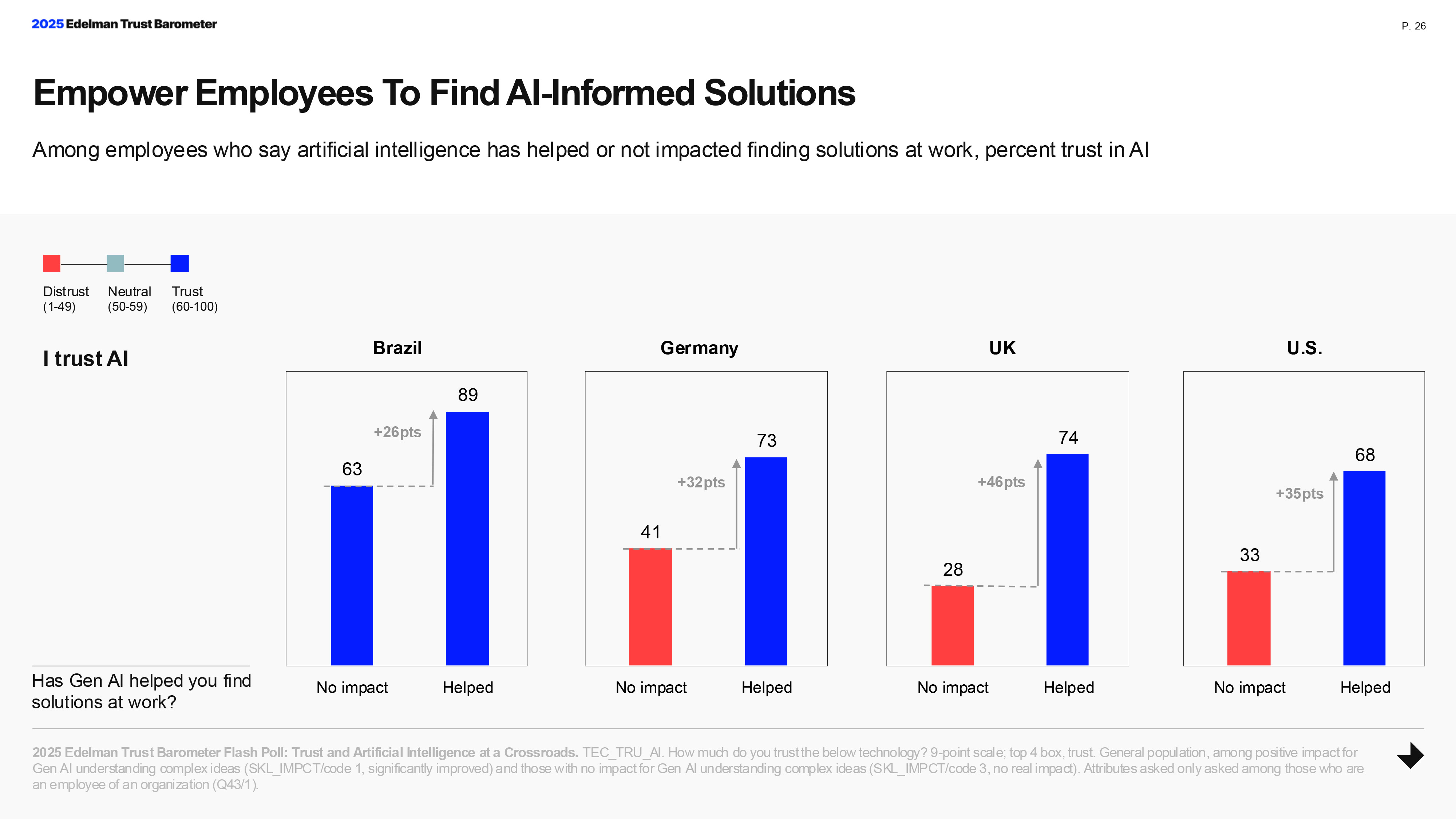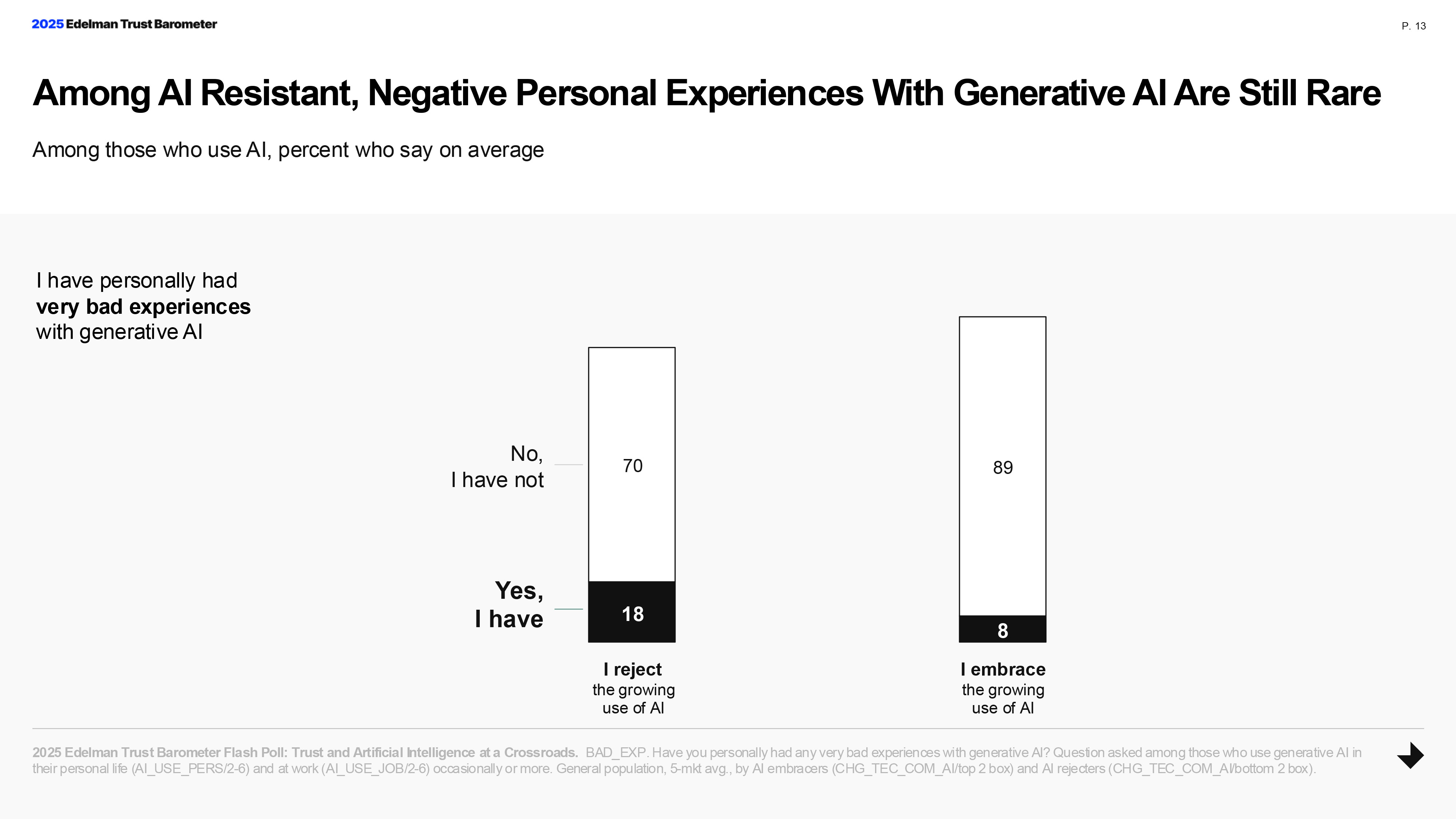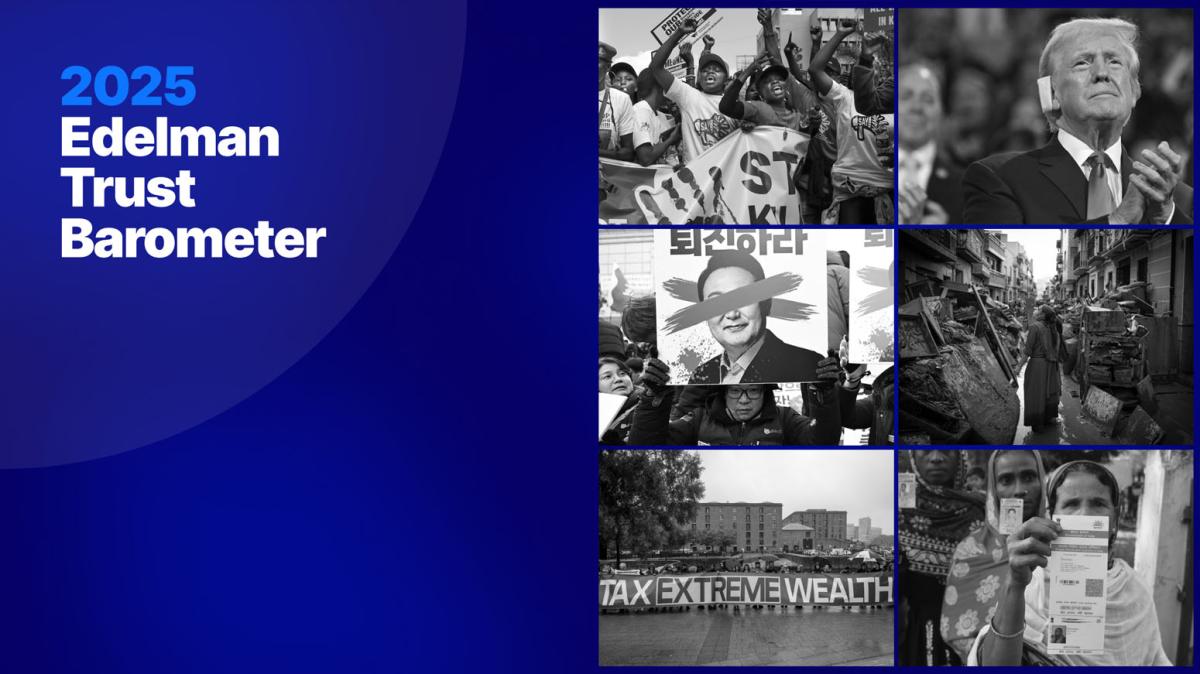Familiarity breeds contempt,” the saying goes, except when it comes to artificial intelligence.
According to the Fall 2025 Edelman Trust Barometer Flash Poll: Trust and Artificial Intelligence at a Crossroads, hands-on experience is the fastest route to trust. The more people use AI, the more they trust it, and the more they trust it, the faster they embrace it.
Across five major markets surveyed—Brazil, China, Germany, the UK, and the United States—trust has emerged as one of the most powerful forces determining whether AI adoption accelerates or stalls. In the poll, trust in AI ranged from 87 percent in China and 67 percent in Brazil to just 39 percent in Germany, 36 percent in the UK, and 32 percent in the United States.
Beneath these national divides, one pattern stands out everywhere. Positive personal experience transforms perception. Among respondents who said AI had improved their understanding of complex ideas, majority in Brazil, Germany, UK, and the U.S. expressed trust in AI technology.
Trust Sets the Pace of Innovation
For the past several years, the industry has focused on persuading people to accept AI through ethical frameworks or assurances of safety. This remains important, but the new evidence suggests it’s not enough. The data show that trust in AI increased the likelihood of enthusiastic adoption by about 16 percent, making it one of the two strongest predictors, just behind how informed people feel about AI.
And trust grows from experience. When people personally benefit from AI, when it helps them work faster, understand complex ideas, or solve real problems, their confidence rises sharply. Across four of the five markets surveyed, employees who said AI had helped them find solutions at work were far more likely to express trust in it than those who said it had made no impact – and the gap ranged from 26 to 46 percentage points.

That link between confidence and adoption suggests that the path forward for business and government is not simply to innovate faster, but to earn trust faster.
For companies developing or deploying AI, this insight has immediate implications. Building trust requires more than public commitments to transparency and responsible design. It requires giving people meaningful ways to interact with AI technology and see its value firsthand. Training programs, pilot projects, and open demonstrations can build this credibility.
At the same time, the data show that fear of AI is often rooted more in perception than experience. Even among those who reject AI, only 18 percent report having a bad experience. This suggests that distrust is largely anticipatory or imagined. Bridging that gap between perception and lived experience may be the single biggest opportunity for business and government to build confidence in AI technology.

Two Worlds of AI Adoption
The poll reveals a stark divide in how societies are approaching AI. Brazil and China stand apart as high-trust environments where optimism is fueling widespread adoption. In both countries, more than two-thirds of respondents say they trust AI, and majorities report feeling confident that generative technologies will improve their mental health and work lives. By contrast, in Germany, the UK, and the United States, trust levels are near or below forty percent, and skepticism remains the dominant sentiment.
For businesses and policymakers, this divergence presents a double challenge. In high-trust markets, the task is to sustain optimism through responsible deployment and straightforward evidence of benefit. In low-trust markets, the task is to rebuild confidence in the institutions behind the technology. Without that foundation, even the most advanced systems will struggle to gain acceptance. In this environment, the role of business becomes pivotal.
Business Has the License to Lead
Understanding where trust resides is equally important. One finding from the poll stands out: people place greater confidence in business than in government to use AI responsibly. Across the five markets, only 34 percent of respondents on average said they were comfortable with government’s use of AI, 46 percent said the same about business overall, and 56 percent of employees are comfortable with their own employer.
This pattern mirrors a broader trend seen in the Trust Barometer over the past several years. According to the 2025 Edelman Trust Barometer, business is now the only institution viewed as both competent and increasingly ethical, while other institutions continue to lag on credibility. In the context of AI, that trust creates both opportunity and obligation. Companies that deploy AI in their operations are expected to lead with transparency, explain how AI affects jobs, and invest in retraining to help employees adapt.
If trust determines the pace of adoption, then business determines the direction. By demonstrating openness, accountability, and a commitment to shared benefit, companies can turn cautious interest into confident engagement and show that responsible use of AI can advance both innovation and inclusion.
The challenge for leaders is no longer just to innovate faster, but to earn trust faster, because in the years ahead, trust will decide not only who adopts AI, but who benefits most from it.
Gary Grossman is Executive Vice President of Corporate Technology US at Edelman and has published extensively on AI issues and trends.




